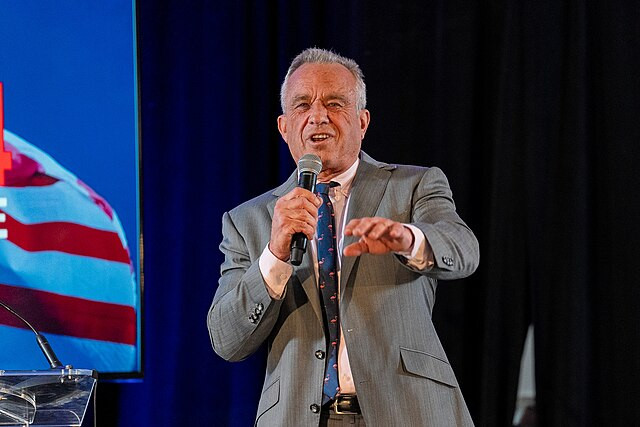Newly unveiled excerpts from Robert F. Kennedy Jr.'s private diaries reveal candid and often unflattering opinions about prominent figures, including celebrities, political leaders, and even his own family members. The diaries, which have come to light over the years, expose RFK Jr.'s inner thoughts, frustrations, and struggles, painting a complex picture of the environmental lawyer and former presidential candidate.
Among those targeted in his writings is actor Tom Hanks. Kennedy described a 2000 encounter with the Hollywood star, writing, "I thought the guy was a chronic complainer when he seemed to have the best luck on Earth." His assessment of actor Bruce Willis, however, was far kinder. Recalling a visit to the set of The Story of Us, Kennedy noted, "I was struck by how slim and strong Willis was - almost slight. He looks buff and tough in the movies."
In another entry, RFK Jr. recounted a phone call with Alec Baldwin in January 2001. According to the diary, Baldwin was deeply concerned about his daughter, Ireland, amid his contentious divorce from actress Kim Basinger. "He is very worried about their child," Kennedy wrote. Ireland was just five years old at the time, though she later gained attention for Baldwin's leaked voicemail calling her "a rude, thoughtless little pig" years later.
Kennedy's writings also delved into his personal relationships with political figures. He expressed disappointment with former President Bill Clinton, particularly over Clinton's 2001 pardon of financier Marc Rich. "He has sold out all who believed in him for trinkets and whatever else he got for those pardons," Kennedy wrote, calling the former president "highly flawed."
Family members weren't spared from Kennedy's sharp judgments. In March 2001, he criticized Edwin Schlossberg, husband to his cousin Caroline Kennedy, for his handling of Jackie Kennedy Onassis's estate. "He considers himself a financial genius," Kennedy wrote, describing the will as "a textbook example of how not to handle an estate. Not a penny was sheltered."
The diaries, which first surfaced publicly following the tragic 2012 suicide of RFK Jr.'s second wife, Mary Richardson Kennedy, also chronicle his own personal struggles. The entries detail his battles with what he called "lust demons" and his efforts to remain faithful despite frequent infidelities. Using coded numbers to signify various sexual acts, Kennedy recorded intimate details of extramarital encounters. On days he avoided temptation, he would write "Victory" in his journal.
The scandal surrounding the diaries was reportedly a factor in Mary Kennedy's emotional distress before her death. In the aftermath, RFK Jr. described the journals as "a tool for self-examination and for dealing with my spiritual struggles at the time."
Despite Kennedy's attempts to move forward, controversies have continued to follow him. Earlier this year, he faced accusations of engaging in an "emotional and digital" relationship with journalist Olivia Nuzzi while married to actress Cheryl Hines. Nuzzi admitted that "the nature of some communication" between her and Kennedy had turned personal but denied any physical relationship. "The relationship was never physical but should have been disclosed to prevent the appearance of a conflict," she said in a statement.
RFK Jr., now 70, has since withdrawn from the presidential race but remains a polarizing figure. His wife, Cheryl Hines, has publicly supported him throughout recent controversies, underscoring the complexities of his personal and public life.





